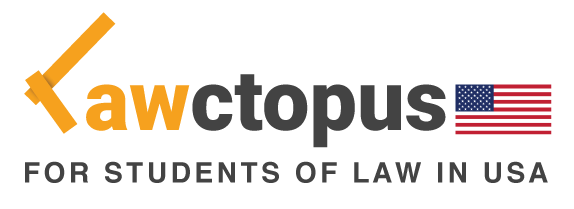The importance of internships in the legal profession cannot be overstated. It is the perfect opportunity for law students to gain practical experience, make connections and get a glimpse of what the legal profession entails.

However, securing an internship is only half the battle. The interview process can be daunting and stressful, especially for students who have never been through it before. Here are five tips for law students to ace their internship interviews.
Firstly, research the firm or organization thoroughly. Before going in for the interview, do some research on the firm or organization you will be interviewing with. Find out their areas of practice, their clients, recent cases they have handled and any notable achievements. This will not only impress the interviewer but also help you tailor your answers to fit the firm’s values and goals.
Researching the law firm or organization before your internship interview is important, but it’s equally important to know how to use that research to impress the interviewer. Here are some tips:
- Show that you understand the firm or organization’s values and goals: When you research the law firm or organization, make note of their values and goals. During the interview, try to show that you understand and share those values. This will demonstrate that you are a good fit for the organization.
- Mention specific projects or cases the firm or organization has worked on: If the law firm or organization has worked on any high-profile cases or projects, mention them during the interview. This will show that you have done your research and are interested in the work the firm or organization does.
- Ask informed questions about the firm or organization: Use your research to ask informed questions about the firm or organization during the interview. This will demonstrate that you are genuinely interested in the organization and have taken the time to learn about it.
- Connect your experience to the work the firm or organization does: If you have relevant experience, connect it to the work the firm or organization does. For example, if the firm specializes in environmental law and you have experience working on environmental issues, mention that during the interview.
- Show that you are up-to-date on industry news and trends: Demonstrate that you are up-to-date on industry news and trends by mentioning recent developments in the field. This will show that you are knowledgeable and engaged in the work the firm or organization does.
Click here to read ‘Important Opportunities and Events with Deadlines for Law Students’
Secondly, prepare your responses to common interview questions. Some questions you are likely to be asked in a law internship interview include your reasons for choosing law as a career, your strengths and weaknesses, your past experiences and your career goals. Prepare your responses to these questions beforehand and practice delivering them in a confident and concise manner.
Thirdly, dress appropriately and arrive on time. Dressing appropriately for the interview shows that you take the opportunity seriously and are professional. Arriving on time shows that you are reliable and respect the interviewer’s time. Make sure to research the firm’s dress code beforehand and dress accordingly.

Fourthly, demonstrate your interest in the legal profession. Employers want to see that you are genuinely interested in the legal profession and not just looking for an internship. Discuss your passion for law and your interest in the specific area of practice the firm specializes in.
Finally, follow up after the interview. After the interview, send a thank-you note to the interviewer to express your gratitude for the opportunity and to reiterate your interest in the position. This shows that you are professional and courteous.
Following up after an internship interview is an important step that many internship candidates overlook. Here are some reasons why following up after an internship interview is important:
- Shows your continued interest: Following up after an interview demonstrates your continued interest in the internship and the organization. It shows that you are motivated and willing to go the extra mile to secure the internship.
- Helps you stand out: A follow-up message can help you stand out from other internship candidates who may not have taken the time to follow up. It can also reinforce the positive impression you made during the interview.
- Provides an opportunity to address any issues: Following up can provide an opportunity to address any issues or concerns that the interviewer may have had during the interview. It also gives you a chance to clarify any points that you may not have explained well during the interview.
- Shows your professionalism: Following up after an internship interview demonstrates your professionalism and attention to detail. It shows that you are organized and capable of handling tasks in a timely and efficient manner.
- Builds a relationship with the interviewer: Following up after an internship interview can help you build a relationship with the interviewer, even if you don’t get the internship. This can be beneficial in the future if another internship becomes available or if you need a reference.
In conclusion, securing an internship in the legal profession is a competitive process. However, by doing your research, preparing your responses, dressing appropriately, demonstrating your interest and following up after the interview, you can increase your chances of success.

Here are some additional points to consider when it comes to acing your law internship interviews.
It is important to showcase your skills and abilities. Law firms and organizations look for candidates who have strong communication, research, writing and analytical skills. Be prepared to provide examples of how you have demonstrated these skills in the past, whether through academic projects, extracurricular activities or past work experience. Additionally, highlight any relevant skills you have gained through coursework or legal clinics.
Click here to read ‘Exploring the Best LLM Programs in India: Specialize Your Legal Expertise Today!’
Be aware of current events and developments in the legal field. Stay up to date on recent cases and legal issues that may be relevant to the firm or organization you are interviewing with. Being knowledgeable about these topics can help you stand out from other candidates and demonstrate your interest in the legal profession.
Be prepared to discuss your weaknesses. While it is important to highlight your strengths during the interview, it is also important, to be honest about areas where you may need improvement. This shows that you are self-aware and willing to work on your weaknesses. Be prepared to provide examples of how you have worked on improving these areas in the past.

Ask thoughtful questions. During the interview, the interviewer may give you the opportunity to ask questions. This is a chance for you to learn more about the firm or organization and show your interest in the position. Ask questions that demonstrate your knowledge of the firm or organization and your eagerness to learn more about the legal profession.
Be professional and personable. During the interview, it is important to maintain a professional demeanour while also showing your personality. Be friendly, engaging and personable while still being respectful and professional. This can help you establish a connection with the interviewer and make a lasting impression.
Click here to read ‘Mastering the Art of Writing a Legal Brief: Tips and Techniques for Beginners’
Lastly, be flexible and adaptable. The legal profession can be unpredictable and fast-paced. Employers look for candidates who are adaptable and can handle unexpected situations. Be prepared to discuss situations where you had to be flexible and adaptable and how you handled them.
In conclusion, acing your law internship interviews requires preparation, knowledge, professionalism and a willingness to learn and adapt. By showcasing your skills, staying up to date on legal developments, being honest about your weaknesses, asking thoughtful questions, and being personable and flexible, you can increase your chances of success.
Remember, the interview is not just an opportunity for the firm or organization to learn about you, but also for you to learn about the firm or organization and determine if it is a good fit for you.
Avoiding Common Mistakes While Applying for Internships
Law students often make common mistakes when applying for internships. Here are some of the most frequent mistakes:
- Failing to research the employer: Law students should research the employer before applying for an internship to learn about the organization’s mission, values, and culture. This information can be used to tailor the application and demonstrate a genuine interest in the employer.
- Why researching the law firm or organization is important?
- What to research about the law firm or organization?
- How to use your research to impress the interviewer?
- Failing to tailor the application: Law students should tailor their application to the specific employer and internship. A generic application that is not specific to the employer or the internship can indicate a lack of interest or effort.
- Failing to highlight relevant skills and experience: Law students should highlight their relevant skills and experience in their application to demonstrate that they are a good fit for the internship. This can include coursework, extracurricular activities, and prior legal experience.
- Failing to proofread and edit: Typos, grammatical errors, and other mistakes can create a negative impression on the employer. Law students should proofread and edit their application carefully before submitting it.
- Failing to follow the application instructions: Law students should carefully read and follow the application instructions to ensure that their application is considered. Failure to follow the instructions can result in the application being rejected.
In summary, law students should research the employer, tailor their application, highlight relevant skills and experience, proofread and edit carefully, and follow the application instructions to avoid common mistakes when applying for internships.


